Depression rehabilitation facility in Bangalore

Nirvaana Depression Rehabilitation Facility in Bangalore provides comprehensive rehabilitation services for those living with depression. We utilize evidence-based treatments tailored specifically for each individual, to foster recovery and stability for each of our clients. With compassion in mind, we guide individuals towards mental wellness while equipping them with tools for long-term success.
Understanding Depression
Mental health disorders, which are characterised by excessive and persistent anxiety or worry, associated with restlessness, difficulty concentrating on tasks, irritability and interferes with daily tasks. They may take the form of generalized anxiety disorder (GAD), panic disorder, social anxiety disorder and specific phobias.
What Is Depression Rehabilitation Center?
Depression rehabilitation centers are facilities specialized in offering intensive treatments and support services for individuals living with severe depression. Unlike general mental health services, they provide an environment geared toward therapeutic interventions, medical support, holistic care services and long-term recovery goals.
What is Depression?
Depression is one of the most common mental illnesses. It is believed that in India, one in 20 people suffer from depression.
Signs and Symptoms of Depression:

Its signs include:
- Persistent Sadness: Feelings of sadness that does not go away with change in environment are known as persistent and pervasive sadness.
- Decrease in Interest/Joy: An obvious decrease in enjoyment from once-loved activities such as hobbies, meeting new people, social interactions.
- Fatigue: Prolonged tiredness and energy deficit even with adequate rest.
- Feelings of Guilt or Worthlessness: Overwhelming feelings of guilt or low self-esteem can have serious repercussions, both within oneself and others.
- Difficulty Concentrating: A difficulty with Concentration, leading to being unable to study or finish works, make multiple mistakes in works, struggle with making decisions, even simple ones or even with remembering things.
- Hopelessness: a feeling that there is no hope for the future, things will never get better and there is no point in trying.
- Suicidal Thoughts: Upon reaching a critical state, thoughts of death or suicide may surface. This could be associated with constantly thinking about it, planning and even attempting to harm self.
- Decreased Libido: a decreased interest in or enjoyment from sexual intercourse.
- Changes in Sleep Patterns: Either insomnia (difficulty sleeping) or hypersomnia (excessive sleeping) or waking up multiple times in the night.
- Alterations to Appetite: Changes in eating habits may lead to significant weight loss or gain, leading to significant weight fluctuations and dramatic fluctuations in appetite.
Recognizing the signs and symptoms of bipolar disorder are crucial for early diagnosis and treatment. Some key symptoms of this illness include episodes of manic and depression with intervening periods of relative normalcy.
Challenges with Depression
- Suicide Thoughts: Suicidal ideas are a psychiatric emergency and need to be managed right away
- Social isolation: the lack of energy, interests and low confidence leads to becoming isolated from the people around
- Occupational challenges: Difficulty concentration, fatigability, lack of motivation all affects work performance
Daily living challenges: never feeling rested, changes in sleep and appetite make it difficult to carry on with everyday tasks
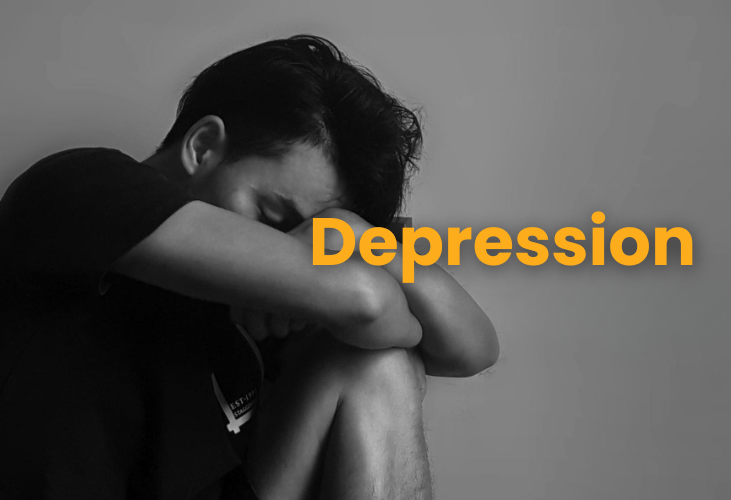
Treatments and Therapies Available for Depression

Psychotherapy:
- Supportive counselling and Crisis intervention
- Cognitive Behavioral Therapy (CBT) aims at identifying and changing negative thought patterns and behaviors.
- Interpersonal Therapy (IPT) seeks to resolve interpersonal conflicts while honing relationship skills.
Medication Management:
- Antidepressants are prescribed to balance chemicals in the brain and relieve symptoms. The use of specific pharmacotherapy approximately doubles the chances that a depressed patient will recover in 1 month.
Holistic Therapies:
- Mindfulness and Meditation: Techniques that foster emotional awareness while relieving stress.
- Yoga & Exercise: Engaging in physical activity to boost mood and overall health.
- Nutritional Counseling: A comprehensive guide on diet and nutrition to promote mental wellbeing.
Support Groups:
- Facilitated group sessions designed to enable people to share experiences and seek assistance from others in similar circumstances.

Ten Benefits of Depression Therapy and Rehabilitation
Benefits of Depression Therapy and Rehabilitation
- Enhancing Mental Clarity and Focus: Therapy not only increases Mental Clarity but also assists with clearing away mental blocks by strengthening focus and decision-making through Cognitive Behavioral Therapy (CBT).
- Reduced Symptoms: Psychotherapy and medication both offer effective ways of alleviating depression-related symptoms such as sadness, fatigue and hopelessness.
- Enhanced Emotional Awareness: Mindfulness Therapies can help regulate emotions by relieving guilt and sadness.
- Increased Social Support: Support groups promote peer relationships to alleviate loneliness and help individuals form friendships that reduce isolation.
- Develop Coping Mechanisms: Coping Mechanisms Therapy helps individuals build resilience and strategies for dealing with daily stresses.
- Physical Health Improvements: Physical activities such as exercise, yoga and nutrition counseling all promote mental and physical wellbeing.
- Relapse Prevention: Therapies such as meditation can assist with relapse prevention by recognizing early warning signs.
- Enhances Quality of Life: Rehabilitation can revive activities and fortify relationships, leading to an overall better quality of life for patients.
- Personalized Treatment Plans: Tailored Care Won’t Affect Recovery Results Tailored care won’t impede recovery results when treatment plans focus on optimizing results for improved recovery results.
- Improvement in Daily Functioning: Daily Functioning Therapy enhances sleep, appetite and work performance to increase overall life satisfaction and maximize life satisfaction.
Nirvaana Rehabilitation Center offers depression treatments. For more information, visit their depression treatment page.
About Nirvaana
At Nirvaana Mental Wellness, we treat a wide range of psychiatric and mood disorders, providing comprehensive care through a combination of various therapies that make the individuals come back to their routine lives.
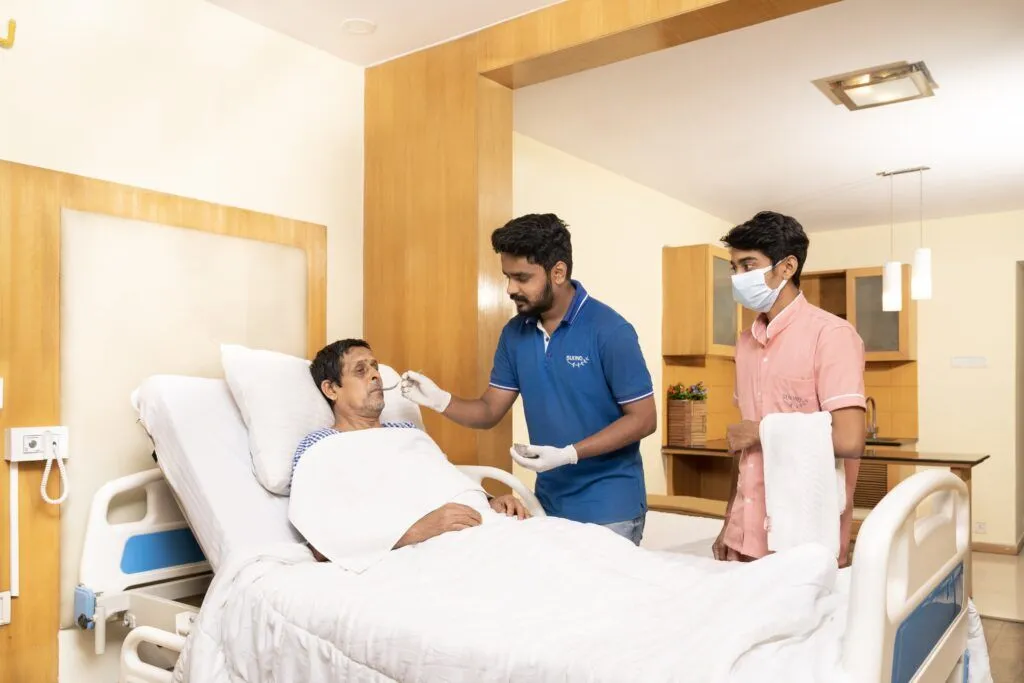
Commitment to Excellence
We provide evidence-based treatment using cutting-edge therapies and proven research methods, combined with compassionate care from our dedicated team, ensuring a smooth and successful recovery from anxiety.
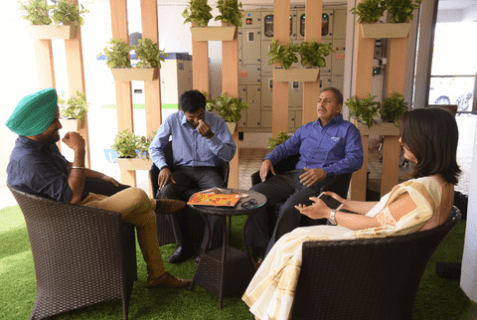
Holistic Approach
At our facility, we employ both traditional treatments and holistic practices in order to address all aspects of mental health – physical, emotional, and social wellbeing are taken into consideration when providing holistic treatments.
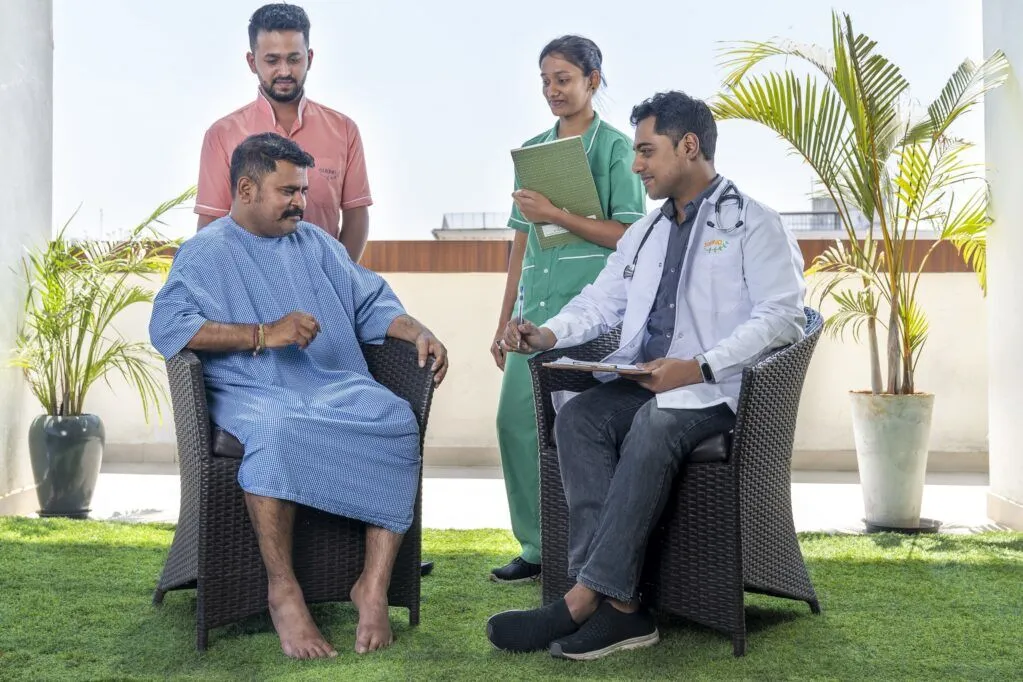
Expert Care Plan
Care plan crafted by experienced team of multidisciplinary team of psychiatrists, therapists and counselors specialize in bipolar disorder treatment, with years of experience helping our patients recover.
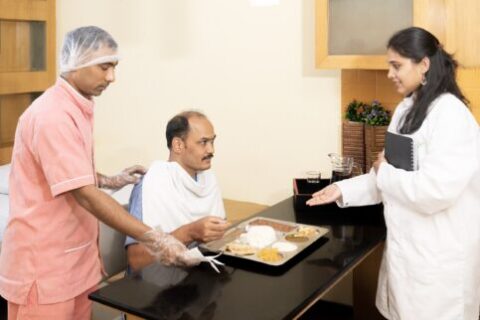
Well-equipped Facility
we understand the vital role environment plays in recovery. We offer modern, comfortable accommodations and amenities designed to provide holistic support through therapeutic options and lifestyle changes
